Medical Students Celebrate the Contributions of Anatomical Donors
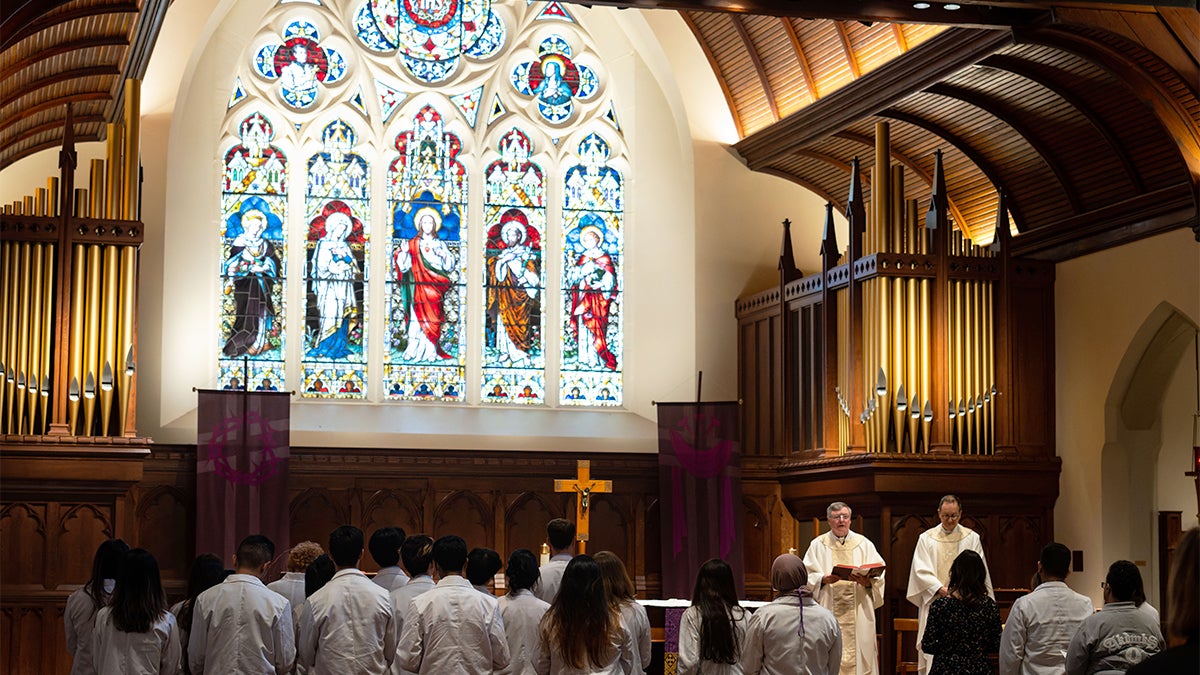
Posted in GUMC Stories | Tagged anatomical donor program, medical education, School of Medicine
(March 26, 2022) — In the late 1400s, Renaissance genius Leonardo da Vinci began studying the human body through dissection. At first, the exercise was driven by an artistic desire to better capture on paper the visible intricacies of our anatomy. But historians say that over time, da Vinci became fascinated by his subjects and sought to understand the full nature of the body human.
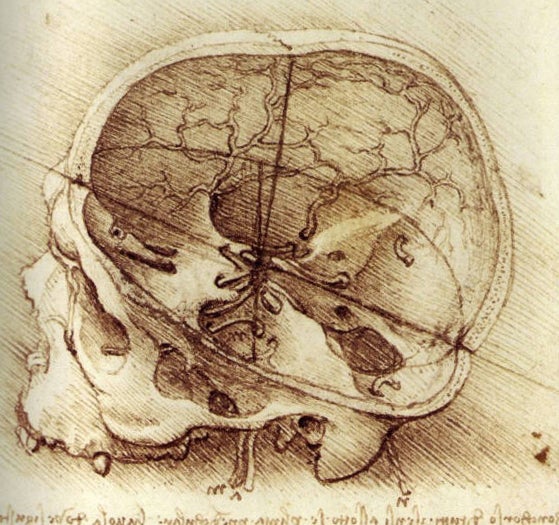
Like da Vinci, today’s first- and second-year medical students recognize cadaver dissection as an essential part of their training — critical to understanding the art of medicine. In appreciation for the invaluable experience of learning from cadavers, members of the Class of 2024 gathered for a celebration of life Mass on March 25 at Dahlgren Chapel, honoring those who donated their bodies to Georgetown’s anatomical donor program.
“I really don’t think that I could have learned as much about the real relationships between different parts of the body from two-dimensional pictures,” said John F Whitney Jr. (M’24), who, along with more than half of the Class of 2024, began in-person gross anatomy courses in January 2021, with extra precautions observed to minimize risks related to COVID-19.
More than 200 family members and friends of the anatomical donors watched the Mass live Facebook.
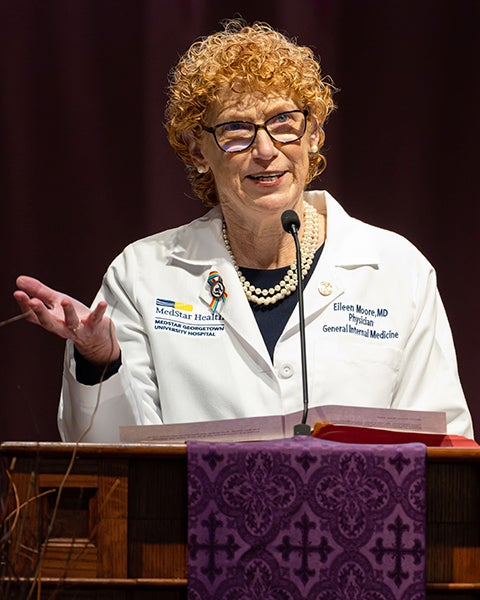
“You are part of our Georgetown family now, and we are so ever thankful to you for sharing the precious, precious, sacred gifts that you have given to us,” said Eileen Moore, MD, associate professor of medicine and family medicine, as she opened the ceremony. “There are no words that can express the depth of our gratitude for these most sacred of gifts. And I promise you, every one of the class members of the Class of 2024 will use and share these gifts that you have provided — that you gave so selflessly, so graciously, in the service of others.”
The Mass was open to those from any faith tradition or denomination, and offered Catholic, Jewish, Dharmic, and Muslim reflections.
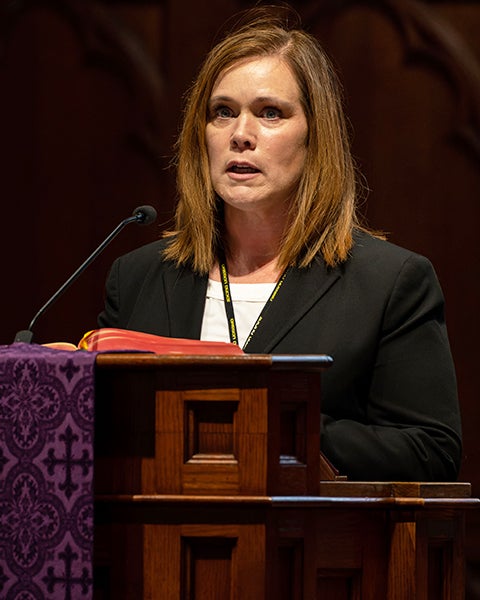
“Students spend a significant amount of time during their first and second year in the gross anatomy lab, and their donor becomes a part of their life,” said Shiloh Jones, PhD, director of medical gross anatomy. “Students experience their donors in a way that no other person ever has. Beyond honoring the donors for the incredible learning opportunity and the loan of their bodies, the donor Mass helps all of the students reflect on the human aspect of who their donor was.”
Akin to a traditional funeral service, students Christopher Choi (M’24) and Dion Hipolito (M’24) wrote and recited obituaries — an exercise intended to personalize the lives that once filled the donated bodies. Students placed roses at the front of the chapel, continuing a tradition from previous donor Masses in which roses were presented to the family members in attendance.
“On behalf of the Class of 2024 and the entire Georgetown community, we thank the families and loved ones of our donors,” said Lizzy Kim (M’24), one of the student event organizers.
“The donors give their bodies so that we can benefit and have a better educational experience — be better doctors,” said Whitney, who organized the ceremony alongside Kim. “I hope that they’ll feel like we did a good job celebrating their loved ones.”
“I can’t even put into words how grateful I am and how humbled I am to have had the honor and the opportunity to learn so much from this individual,” said Lizzy. “I would want my donor to know that I am so thankful for the gift of her body and the gift of knowledge, which I will carry with me into the future as a physician.”
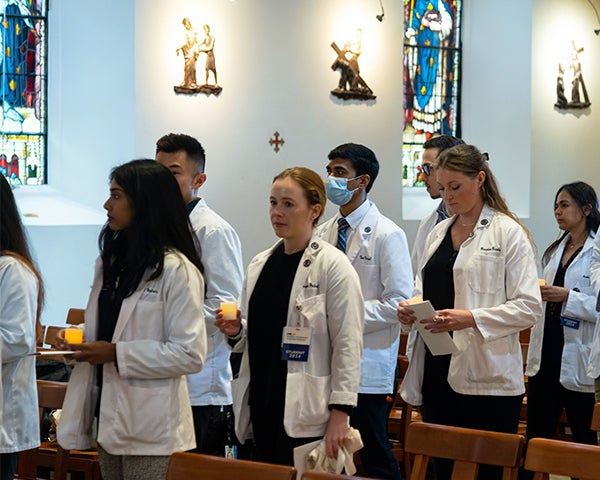
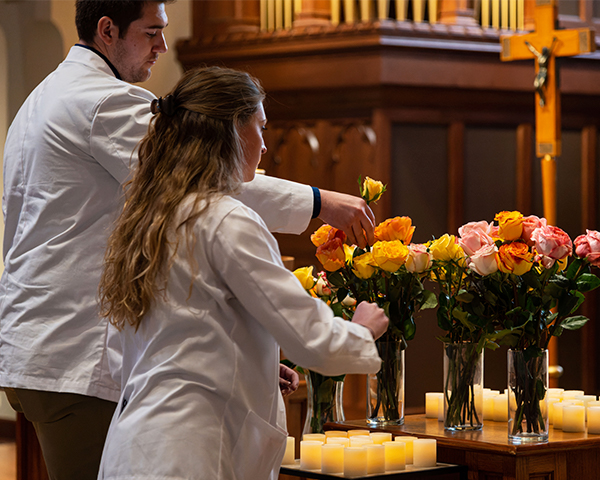
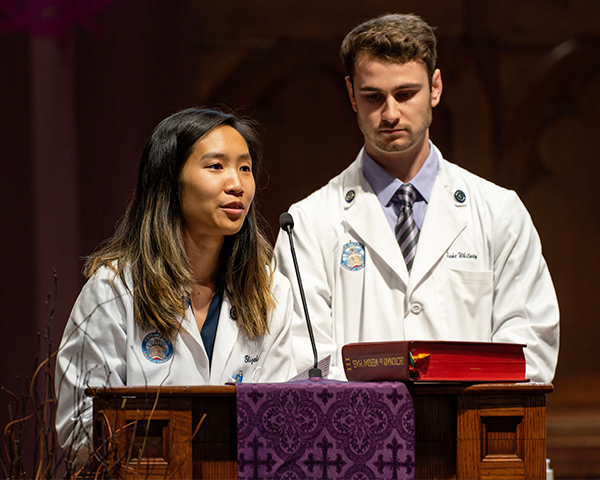
Hear donor families, medical students and faculty share the importance of Georgetown’s anatomical donor program.
